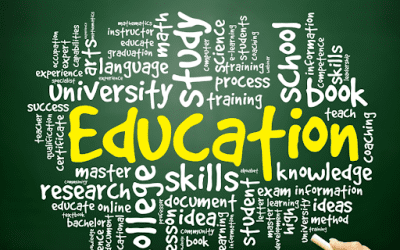Staying in college and graduating presents challenges for many students, particularly community college students. According to Think Impact, Inc., a 3.8 billion loss happens each year from college dropouts. Therefore, college leaders for 2-year and 4-year higher-ed institutions must make strides to ensure students become college graduates. Students may come from low-income families and face barriers that traditional students do not face. Thus, college leaders apply these four strategies to help community college students to become college graduates.
1.) Create First-Year Experience Courses to Support Community College Graduates
So, college leaders can focus on creating first-year courses to promote student academic achievement. These courses can focus on time management, study skills, and research. Some students who return to college or students who did not receive support in the past, need these support classes. For example, for time management, students who are working or raising a family can learn how to build a schedule. They can use these skills to manage working full-time and attending school. Other topics help students learn how to persist in a college environment. Duckworth and Dweck outline the importance of having grit and having “a growth mindset” respectively. Not only do the skills help students excel in college but also later in life. Overall, college leaders design these courses to ensure that students become college graduates.
2.) Produce Accelerated Programs to Help College Graduates
Most importantly, college leaders create specific programs to improve completion rates at community colleges. Targeted programs show promise and effectiveness. For example, CUNY created the ASAP (Accelerated Study in Associate Programs), and it doubled the graduation rates for its participants. This program, which started as a study, began at three community colleges: Borough of Manhattan, Kingsborough, and LaGuardia. Participants received free metro cards, a tuition waiver for qualifying students, tutoring, career services, counseling services, and free textbooks. These students had to attend college full-time and were encouraged to finish their program within 3 years. As a result, 40% at the end of 3 years had obtained their degree. Community college leaders could build similar programs like this one to improve completion rates.
3.) Connect to or Produce Unique Services to Help Students Become College Graduates
Thus, some colleges employ unique systems for tutoring and counseling to help their students achieve academic outcomes. For example, Inside Track, a coaching system serves 4,500 campuses. The text and mobile based platform helps students with enrollment and study skills. The service promotes a learner-centered education using automated messaging and various levels of coaching to keep students engaged. Additionally, a community college can plan and create its own system, using CASS: comprehensive approaches to student success. CASS follows three design elements: a counselor or case manager, real-time data, and success strategies. The case manager focuses on handling issues beforehand—they seek out the student. Real-time data helps colleges track students’ progress, viewing to see if they reach their benchmarks. One success strategy a college leader could set up is tuition waivers. These monies might be completion funds, aiding students to complete their courses. Overall, these different programs support students, helping them to graduate.
4.) Make Multifaceted Programs for College Retention—Be Student Ready
Therefore, multifaceted programs provide another tool that community college leaders can apply to improve graduation rates. With the growth of online learning, community colleges might partner with other schools to offer online courses not offered at their college. Specific classes can help students advance in their studies during summer sessions. Besides that, these classes aid students to make up courses they did not complete the first time. Partnering with local businesses to offer job experiences can motivate students to graduate. Other services like accelerated programs, innovative service programs for tutoring or counseling, first-year courses, and wrap-around services support student retention. Thus, community college leaders prepare their schools to be student-ready. They address the barriers pre-enrollment, during instructional years, and near completion of studies to ensure students become college graduates.
Preventing students from dropping out—not obtaining a degree creates an ongoing challenge for college leaders. Yet, various strategies exist to help students stay on course, which create a student-ready college for students to succeed. Leaders at 2-year and 4-year institutions use different tools like first-year courses, accelerated programs, unique services, and multifaceted approaches to help students become college graduates.




